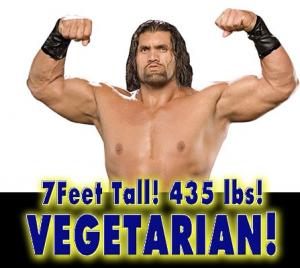
Smith & Wollensky, a North Dallas eatery, has been publishing a third-of-a-page advertisement in The Dallas Morning News. I’ve seen the ad two or three times now, including in today’s Sports Section. The restaurant’s slogan, “Horrifying Vegetarians Since 1977,” appears prominently in the ad (above a life-size steak knife). I believe this slogan is used by other restaurants across the country, but that doesn’t make it any more acceptable. It is unacceptable. Where does a restaurant get off belittling vegetarians? There are, of course, different grounds for vegetarianism. Some people forbear from eating meat on prudential grounds: They believe it to be unhealthy. But others forbear on moral grounds: because they believe meat-eating to be wrong. It is one thing to reject the proposition that meat-eating is wrong; this is a respectable position taken by many intelligent, well-meaning people (including philosophers). But how low is it to belittle those who conscientiously choose vegetarianism as a way of life? The slogan encourages meat-eaters to look down on vegetarians, when in fact they should look up to them.
In some quarters, sadly, moral seriousness is seen as naivete. People with moral scruples are viewed as uncool, dorky, laughable, perhaps even as ascetic or religiously dogmatic. Don’t vegetarians realize that the vast majority of people enjoy the taste of animal flesh? Don’t they know that humans have been eating meat for as long as there have been humans? Do vegetarians really believe that their choice of a meatless diet will make a difference? Will a lifetime of vegetarianism save even one cow?
 But these questions presuppose that the point of living a moral life is to make a large-scale difference. It is not. None of us controls anything but his or her own behavior. The point of living a moral life is to achieve a kind of integrity in which one not only has moral principles (one can always avoid hypocrisy by refusing to stand for or espouse anything), but strives mightily to live up to them. An integrated person—a whole person rather than a shard of a person—tries to integrate his or her beliefs, principles, feelings, values, attitudes, and actions. An integrated person avoids hypocrisy (not practicing what one preaches), insincerity (not believing what one says), and inauthenticity (not feeling the feelings one expresses).
But these questions presuppose that the point of living a moral life is to make a large-scale difference. It is not. None of us controls anything but his or her own behavior. The point of living a moral life is to achieve a kind of integrity in which one not only has moral principles (one can always avoid hypocrisy by refusing to stand for or espouse anything), but strives mightily to live up to them. An integrated person—a whole person rather than a shard of a person—tries to integrate his or her beliefs, principles, feelings, values, attitudes, and actions. An integrated person avoids hypocrisy (not practicing what one preaches), insincerity (not believing what one says), and inauthenticity (not feeling the feelings one expresses).
I’m not making a case, here, for vegetarianism. Others have done so far better than I can, or ever will. I’m making a case for respecting, even admiring, vegetarians. They are trying to live a life of integrity and principle. They want the world to be better, not worse, as a result of their existence. They care about something besides social status and gustatory pleasure. Not consuming animal flesh is a way of showing respect for the animals, many of whom were treated like machines while they lived. It is a way of saying, “Not through me.” It is a way of standing up for something.
Most readers of this blog know about Peter Singer’s important work in animal ethics. Animal Liberation, now in its second edition, is a classic. Singer made discussion of the moral status of animals respectable and serious (not to mention lucrative, in the sense that one can make it an academic specialty). Here are two other worthwhile items: (1) David DeGrazia, Taking Animals Seriously: Mental Life and Moral Status (Cambridge: Cambridge University Press, 1996); (2) Mylan Engel, Jr., “The Immorality of Eating Meat,” in The Moral Life: An Introductory Reader in Ethics and Literature, ed. Louis P. Pojman (New York: Oxford University Press, 2000), 856-90. Anyone who wants a PDF version of the second of these items, which I consider the best essay ever written about vegetarianism, should write to me. I will be happy to e-mail it.